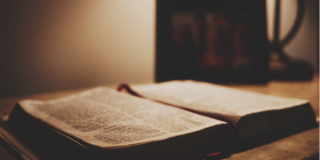When I was in my mid 20s a friend invited Sandy and I to his 40th birthday. He was a recovering alcoholic, as was everyone at the party, except Sandy and I. It was an incredible experience. Every person there had sunk as low as they could imagine going and were now climbing their way out, and that made them the most unpretentious group of people I’ve ever met. They knew they had failed, were frail and liable to fall. It left them with a grace I find difficult to capture in words.
The year my alcoholic friend was born Alexander Solzenitzen was interred in a Soviet prison camp after he wrote a letter to a friend criticizing Josef Stalin. He would languish in prison for decades but his book The Gulag Archipelago exposed the oppressive ways of the Soviet regime.
It was remarkable that despite the gross injustices heaped upon him, Solzenitzen came to the view that
[quote]The line separating good and evil passes not through states, nor between classes, nor between political parties either, but runs right through every human heart[/quote]Solzenitzen knew he was as liable to anger, resentment, and violence as his oppressors. Before being imprisoned he had served in the army and judged that the things he had done during war were as vile and brutal as the guards in the prison.
[quote]”I remember myself in my captain’s shoulder boards and the forward march of my battery through East Prussia, enshrouded in fire, and I say: ‘So were we any better?'”[/quote]Nineteen hundred years before Solzenitzen was imprisoned the apostle Paul took issue with those who believed that because they possessed God’s law they were morally superior to those who didn’t. Paul declares that “all have sinned and fall short of the glory of God”. In a pain riddled chapter seven of the book of Romans he describes the agony of knowing the good he wants to do, but not doing it.
My alcoholic friend, Solzenitzen and Paul all knew themselves to be frail, sinful human beings, capable not only of good but also failure and evil.
I think this is an extremely important insight. Only when we admit that we have as great a capacity for evil as for good, for failure as success will we be able to avoid perpetrating evil, for we will have the capacity for self critique.
Only when we admit that we have as great a capacity for evil as for good, for failure as success, will we be able to build honest, welcoming communities freed from judgementalism, for we will know that we too have the capacity to do what has been done to us.
Only when we admit that we have as great a capacity for evil as for good, for failure as success, will we be able to truly throw ourselves on God’s grace, for we will appreciate just how great is God’s embrace of us.
The problem for a middle class man like me is I’d prefer not to admit it. And that, ironically, illustrates the point






